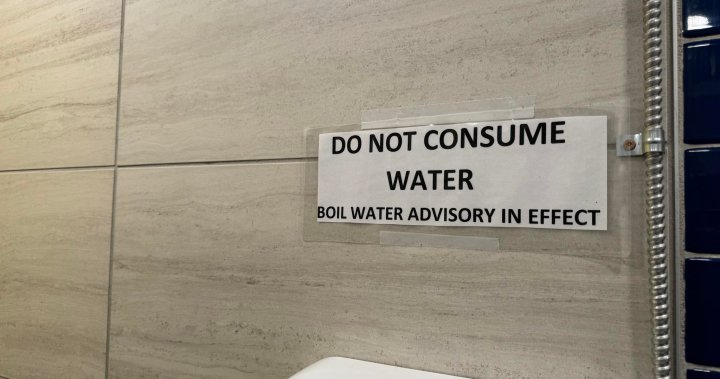The U.S. ambassador to Canada is hailing what he calls a pivot on China policy: Ottawa has woken up, he says, to a pressing geopolitical challenge.
David Cohen acknowledges there were worries in Washington about whether Canada was too chummy with China, noting it even came up last year in his Senate confirmation hearing.
But the U.S. envoy says those concerns are being put to rest by Ottawa’s latest moves: pushing Chinese state-owned companies out of Canadian mines, cancelling a contract for RCMP communications equipment and studying the creation of a foreign agents list.
“Some people have called it a pivot. And I think that’s fair,” Cohen told Catherine Cullen, host of CBC Radio’s The House.
“Because I think Canada is not behaving toward China in the way in which it has historically behaved toward China,” he said.
“They have clearly woken up to a significant issue…. I don’t know what else we could ask Canada to do.”
In fact, he said, the Canadian approach now sounds a lot like the U.S.’s: invest in technology and manufacturing at home, co-operate with allies, and engage or compete with China on a case-by-case basis.
This comes after years in which Americans occasionally expressed suspicion, or even incredulity, regarding what many in the U.S. viewed as a naive Canadian approach.
That wariness was reflected in the new North American trade pact — the United States insisted on an unusual condition, commonly referred to as a China clause, a threat to terminate the agreement if any party signed an unacceptable deal with a non-market country.
China situation ‘really bad’
But some Americans are still concerned.
One former U.S. intelligence official just wrote a scathing assessment of what he described as a lackadaisical approach by Canada and its potential to create spillover risks for the U.S.

John Schindler, a former counter-intelligence officer at the National Security Agency, and professor at the U.S. Naval War College, listed recent news headlines from Canada — Chinese interference in the 2019 election, Chinese “police stations” in Canada, a suspected spy at Hydro-Québec — and accused the Trudeau government of dragging its feet in dealing with them.
He warns that Beijing’s corruption of Canadian business and politics risks becoming a national security problem for the U.S., given that it shares intelligence with Canada through its Five Eyes partnership.
CBC News: The House15:40U.S. ambassador comments on Canada’s China policy
U.S. Ambassador David Cohen speaks to host Catherine Cullen about how Canada’s biggest ally views this week’s controversy over an RCMP contract with a China-linked company, and reflects on his first year in the job.
“The situation with China is really bad,” Schindler told CBC News. He says Canada is a weak underbelly for Russian and Chinese intelligence to permeate.
“They’re pushing hard on Canada because they’re getting away with it,” he said, raising fears in American intelligence circles that secrets shared with Canada will wind up in the hands of U.S. adversaries.
Schindler urged changes to Canadian money-laundering laws and more resources for intelligence services (which Ottawa just promised) and said Canada should create, as some allies have, a public registry of foreign agents.
‘Desperately’ needed
Such a registry won’t stop foreign interference, but, he said, it will help. And it would allow Canada to prosecute people for hiding their activities.
“Canada desperately needs something like this,” said Schindler, who knows Canada better than most Americans, having gotten his PhD in European and military history at McMaster University in Hamilton.
It’s unclear how the Chinese government would react. After Conservative MP Kenny Chiu proposed such a registry in a bill, he says he was targeted in an online misinformation campaign when he lost his seat last year.

The Trudeau government is, in fact, considering creating a registry, which the U.S. and Australia have, and which the U.K. is also creating.
Public Safety Minister Marco Mendicino says he’s going to consult the public on it. His spokesperson tells CBC News the guidelines for the consultation should be published within weeks, and the process will start in the new year.
Canada will also likely consult experts in countries that have experience running such registries, the spokesperson said. Cohen, the ambassador, said the U.S. would be happy to share information about its own system, which has existed for 84 years.
It began with the Nazis.
Nazi agents
German government sympathizers permeated Washington in the 1930s, in an episode of history whose hair-raising details are mostly forgotten.
A new podcast series by Rachel Maddow describes a long-classified report accusing two dozen members of Congress of participating in Nazi information campaigns, with German agents apparently instructing and paying some.
One congressional committee was told of a fascist plot to overthrow the government involving ex-military and business leaders who allegedly hoped to create Nazi-style labour camps.
In a February 1935 report, the committee recommended creating a registry of people doing publicity and propaganda work for foreign countries.
The idea behind it was that the U.S. should preserve freedom of speech, including the right to speak out on behalf of a foreign adversary, but that such speech should be transparent.
That led to the Foreign Agents Registration Act (FARA) three years later. When then-president Franklin Roosevelt signed it into law, he described its purpose as shining “the spotlight of pitiless publicity” on foreign propaganda.
The result? People must register on a publicly accessible website if they want to do public relations, promotional work or lobbying for a foreign government inside the U.S.
If they don’t register, they risk up to five years in jail.

Ways the U.S. registry works … and doesn’t
It’s been used to lay charges more than a dozen times since 2007 against foreign nationals, such as Russians who interfered in the 2016 election, and also Americans, including several well-known aides to former president Donald Trump.
Just this week, a former U.S. congressman was arrested and charged with failing to register his work on behalf of Venezuela’s state-owned oil company.
Republicans will likely investigate whether Hunter Biden broke the FARA law by failing to register as a foreign agent.
That registry also monitors Canadian activity in the U.S.
It’s how, for example, CBC News found details of a multimillion-dollar promotional campaign in the U.S. for the province of Alberta; the contracts were posted online.
Or, in Quebec, it notes that the province’s big pension-fund manager has just budgeted $315,000 for U.S.-based communications services.

The system has its critics.
A 2016 audit found that registration plummeted in the 1990s, in an era when the law was rarely applied. It counted only seven criminal FARA cases between 1966 and 2015.
The former head of the FARA unit at the Department of Justice told CBC News that the U.S. program is old and Canada would be wise to study several countries’ experiences.
Brandon Van Grack said the positives of FARA are that it’s helped shed light on foreign influence and, in his opinion, it’s definitely dissuaded some such activity.
On the negative side, he said, it’s out of date and broadly written, making no distinction between promoting a foreign government, business, non-profits or tourism.
That’s why so many foreign agents of tourism boards show up on the registry.
Van Grack says he doesn’t think that’s the intended focus of the law. Also, the U.S. system was designed in a pre-internet age, he said.
It requires people to file with the U.S. government within 48 hours of disseminating informational materials intended to target more than one person in the U.S.
“So what do you do if you’re tweeting all the time?” Van Grack said. “I don’t think the United States has solved [that].”
He said Canada has a clean slate to design something new: “You’re creating a foundational law here…. What is the foundation you want to lay?”







More Stories
Saskatchewan isn’t remitting the carbon tax on home heating. Why isn’t my province following suit?
Here’s why provinces aren’t following Saskatchewan’s lead on the carbon tax home heating fight
Court ruling affirms law curbing parliamentary immunity of spy watchdog members